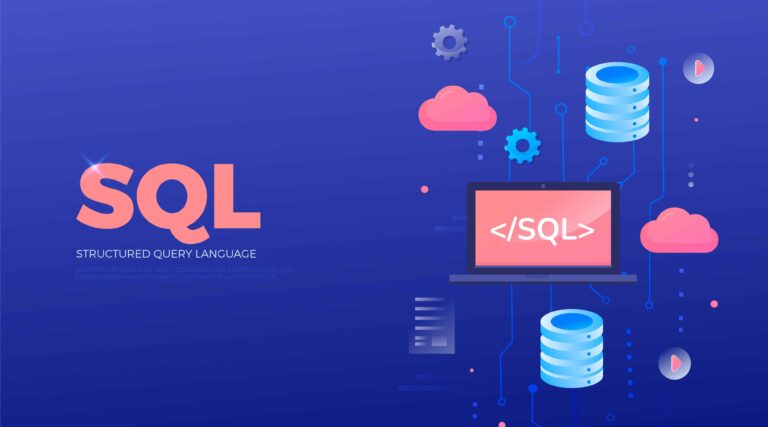SQL Technology
The Heart of SQL Technology
MySQL is an open-source relational database management system (RDBMS) that has become a central component of the LAMP stack, an open-source web application software stack. LAMP stands for Linux, Apache, MySQL, and PHP/Perl/Python. MySQL is also compatible with various “AMP” stacks, such as WAMP (Windows, Apache, MySQL, PHP) and MAMP (macOS, Apache, MySQL, PHP), making it a versatile and widely adopted database solution.
What is MySQL?
MySQL is a powerful, efficient, and reliable RDBMS that uses Structured Query Language (SQL) for database access and management. As an open-source platform, it allows developers to modify the source code to fit specific requirements, providing flexibility and control. MySQL is known for its speed, robustness, and ease of use, which has led to its widespread adoption in various applications and industries.
Key Features of MySQL
contributed to its popularity among developers and businesses.
MySQL is a highly versatile database management system, offering cross-platform compatibility by running on a variety of operating systems such as Linux, Windows, macOS, and UNIX. This flexibility makes it an ideal choice for diverse computing environments.
One of MySQL’s key strengths is its scalability. It efficiently manages large databases with millions of rows, making it suitable for applications ranging from small-scale projects to enterprise-level solutions.
Security is a paramount feature of MySQL. It includes robust security measures such as user authentication, data encryption, and access control. These features are essential for protecting sensitive information and ensuring data integrity.
Performance is another area where MySQL excels. It is renowned for its ability to handle a large volume of queries and transactions with high efficiency. This makes MySQL an excellent choice for high-traffic websites and applications that require rapid data processing and retrieval.
Additionally, MySQL benefits from extensive community support. It has a large, active community of developers who continuously contribute to its improvement. This community also offers valuable resources such as forums, documentation, and tutorials, providing ample support for users at all levels of expertise.
MySQL in the LAMP Stack
MySQL plays a crucial role in the LAMP stack, a popular stack for developing web applications. Here’s how it fits into each component of the LAMP stack:
- Linux: The operating system that provides a stable and secure environment for running web applications.
- Apache: The web server that handles HTTP requests and serves web pages to users.
- MySQL: The database management system that stores, retrieves, and manages data for web applications.
- PHP/Perl/Python: The scripting languages used to develop dynamic and successful web applications that interact with the MySQL database.
Applications Using MySQL
- TYPO3: A powerful, open-source CMS that uses MySQL to store and manage content for websites.
- MODx: A flexible CMS and web application framework that relies on MySQL for data storage.
- Joomla: A popular CMS that enables users to build websites and online applications, with MySQL as its database backend.
- phpBB: An open-source forum software that uses MySQL to manage user data, posts, and forum configurations.
- MyBB: Another open-source forum software that relies on MySQL for its database operations.
- WordPress: The most widely used CMS in the world, WordPress uses MySQL to store posts, user data, and other site information.
- Drupal: A robust CMS that powers many websites and applications, using MySQL to handle its data storage needs.

High-Traffic Websites Using MySQL

Many high-traffic websites rely on MySQL for their database management due to its performance, scalability, and reliability. Some notable examples include:
- Google: Uses MySQL for various applications and services.
- Facebook: Relies on MySQL for managing vast amounts of user data and interactions.
- Twitter: Utilizes MySQL to handle its large volume of tweets and user information.
- Flickr: Uses MySQL to manage its extensive collection of user-uploaded photos and metadata.
- YouTube: Relies on MySQL to store and manage its vast library of video content and user data.
Benefits of Using MySQL
- Cost-Effective: As an open-source solution, MySQL is free to use, which makes it a cost-effective choice for businesses of all sizes.
- Flexibility: MySQL’s compatibility with various operating systems and integration with multiple programming languages offer great flexibility in application development.
- Ease of Use: MySQL’s user-friendly interface and comprehensive documentation make it easy for developers to get started and manage databases efficiently.
- Reliability: MySQL is known for its stability and reliability, ensuring that applications run smoothly and data is securely managed.
- Performance Optimization: With features like query caching, indexing, and advanced configuration options, MySQL can be optimized for high performance in demanding applications.
Conclusion
MySQL stands as a cornerstone of SQL technology, providing a robust, efficient, and versatile RDBMS for a wide range of applications. Its role as a central component of the LAMP stack and its adoption by high-traffic websites like Google, Facebook, and YouTube attest to its reliability and performance. At IT Chimes, we recognize the immense potential of MySQL in delivering high-quality, scalable, and secure database solutions. Whether you are building a simple website or a complex application, MySQL offers the tools and features necessary to achieve your goals. As a trusted SQL Technology partner, we are committed to leveraging MySQL’s strengths to help businesses thrive in the digital age.
